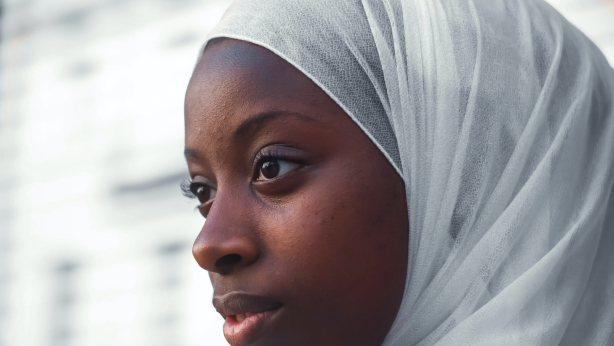The Walls We Have Built
I live among an unreached people group where the majority are Muslims. As usual, salvation is first availed to those nearby and so it has been my habit to meet and converse with my neighbors in order to create avenues and bridges to evangelize to them. There’s a certain lady who lives behind my house (we will call her Habiba for now). She is of Borana origin, an unreached people group in Northern Kenya and Southern Ethiopia, which is the dominant people group of this area.
I paid Habiba a visit one evening after work. After a lengthy conversation, I discovered that she was a Christian. All Borana females wear long dresses and sometimes veil their heads to a point that you cannot superficially differentiate a Christian from a Muslim. This is because most of them are first-generation Christians from Islamic backgrounds. I was wrong to assume that she was a Muslim just by judging her looks. After about an hour’s discussion around religion, I came to understand the struggles that the first generation of Borana Christians were facing. She narrated incidents of her friends who had converted from Islam to Christianity only to be later married to Muslims! She described how hard it had been for them to fit into Christianity and adapt.
While conversing, she suddenly turned to me and asked, “Why are you people like this? Cruel and hypocritical!” This was a shocking and serious indictment to my faith and so I politely requested for an explanation. She was kind enough to explain briefly. Habiba grew up in a neighboring village and after schooling there, she secured a chance to study at a university in my home town near Nairobi. While there, she was living with two other Borana friends and one of them was a Christian. Desperately needing fellowship with other believers, the two stepped out to look for a church to join and be attending while they were away from home.
On the first Sunday, the two walked to a nearby church behind the hostels. It was around nine in the morning. Along with other church members, Habiba and her friend sat on the chairs in the middle row of one column at one end of the church. The worship team led worship as people gathered to start the morning service. Immediately they sat, the worship died and the church members, one by one, started to run away from them until the row they sat on, three rows before and behind it, were totally empty! Shocked and scared, the two wondered what they had done wrong.
They could identify the lead pastor at the front consulting with other church leaders while suspiciously pointing fingers at them. This caused them to examine themselves. They stood up, checked and confirmed if everything was fine and normal with them. They sat waiting and longing for the church service to begin. After almost an hour of church leaders consulting and the service not starting, the two stood up ready to leave and look for another church to fellowship in. Two women who were church elders approached them and politely uttered, “Just in case you’re confused, this is a church and not a mosque.” Shocked to the core, Habiba and her friend explained that they were Christians looking for a church to fellowship in. The church leaders then explained everything and apologized for their reaction. The turmoil ceased and soon after, the church service resumed.
The next Sunday, Habiba and her friend were not comfortable going back to that church where they were mistreated and misunderstood. They therefore decided to go to another church not far from it. This was a bigger church. They thought that big churches would understand them. Having woken up very early, the two went there and stood at one of the church’s several gates. When the guards spotted them, they chased them away telling them to go and look for mosques. The guards were very rude, arrogant and refused to let them in. It was a heartrending experience! Having already caused a scene, the two still tried to reason with the guards. Finally, the guards agreed to let them in. They quickly entered the church and sat among other faithfuls attending the morning service. Inasmuch as this seemed to be the right place for Habiba, trouble was far from over! While the preacher was delivering a good sermon, one of the cameramen zoomed into Habiba and her friend and suddenly, they were on all the big screens in the Church. Seeing this, the pastor sent an usher to find out what they were doing in the church. They were escorted to the church office downstairs and were interrogated as if they were terrorists! After discovering that they meant no harm, the church apologized and even gave the two ladies money.
After listening to this heartbreaking story, I apologized on behalf of the churches in my home town. However, the thoughts of these unimaginable acts left me in deep contemplation. Is it lack of experience or lack of understanding of the Bible that has made the urban church get to this point? On one hand, we have a church commissioned and mandated to bring the lost sheep home, but this church doesn’t understand a thing about what is happening outside the four corners of her big building. You and I can agree that the unreached need to be understood, shown love, care and only then will they open their hearts to the gospel. They need strong pillars and disciplers who will disciple them into the faith instead of dismissing their urgent need for the gospel.
In the North and Northern Eastern part of the country, the locals dress like that and attend church services in long dresses. It’s their culture; their way of life. Nevertheless, it seems that the mainstream church has not gotten hold of this important information for it mostly concentrates on her issues at the expense of the reaching the unreached. I got to clearly understand the struggles that first-generation Christians from Islamic backgrounds face while integrating and associating with the rest of the Christian family. Come to think of it, Habiba was living in a hostel reserved only for the Muslims while in the university and if well-equipped, she could have reached out to her Muslim friends with the gospel as well as those back in her village away from school and town. I see a huge potential in her one life! It is worth noting that her friend later got married to a Muslim and converted back to Islam.
Church, we need to do better and may Jesus help us all!
***Peter Kale (not his real name) is a missionary serving among an unreached people group in Northeastern Keny



A very valuable lesson learnt in the Habiba story. May we be careful not to breach the nets and thus, losing the catch that we already have.
This is troubling for me as I reflect on Habiba’s story. I am asking myself – if my actions or inactions has prevented someone who desperately wanted to hear about Jesus from doing so.
May God help us to love as He loves and see as he sees- to be a church that loves even strangers to Himself rather than push them away.
So much learnt here..
God grant us grace!